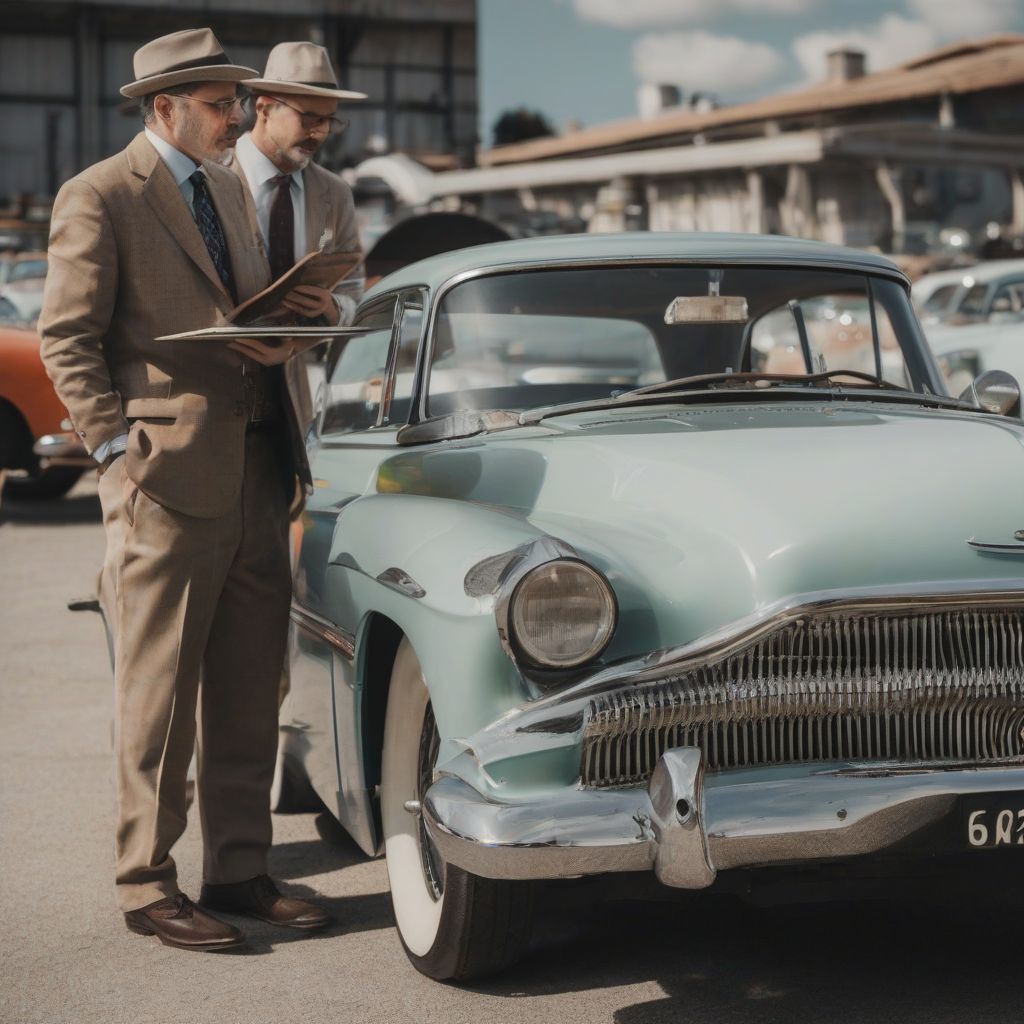Ever daydreamed about cruising down the Pacific Coast Highway in a cherry-red 1965 Ford Mustang, the wind in your hair, the sun on your face? Or maybe your classic car fantasies involve a sleek 1957 Chevrolet Bel Air, all chrome and fins? Owning a classic car is a dream for many, and like any good dream, it often starts with a little bit of research. Before you rev your engines and head to an auction, it’s crucial to understand how to evaluate the value of a classic car.
What Makes a Car “Classic”?
Before we delve into the nitty-gritty of valuation, let’s define what makes a car “classic.” While the exact definition can be debated among enthusiasts, it generally refers to a car that’s at least 25 years old, holds historical significance, and often boasts a limited production run. These cars aren’t just vehicles; they’re rolling pieces of history, design marvels, and cultural touchstones.
Factors that Influence Classic Car Value
Evaluating a classic car isn’t as simple as checking the Kelley Blue Book. Here are the key factors that influence their value:
1. Rarity and Production Numbers
The law of supply and demand reigns supreme. A rare model, especially one with a documented production history, will command a premium over a more common classic.
2. Condition: The Heart of the Matter
Condition is king in the classic car world. A pristine, well-maintained car with original parts will fetch a much higher price than one needing significant restoration. Assess the following:
- Exterior: Look for rust, dents, paint quality, and the condition of chrome trim.
- Interior: Examine the upholstery, dashboard, gauges, and carpets for wear and tear.
- Engine: A smooth-running engine is a must. Look for leaks, listen for unusual noises, and check the maintenance records.
3. Originality: A Numbers Matching Game
Originality is highly prized. “Numbers matching” – meaning the VIN, engine block, and other major components are original to the car – can significantly boost value.
4. History and Provenance: Telling the Car’s Story
A documented history adds to a car’s allure. Previous ownership, racing history, or celebrity connections can all influence value.
5. Desirability and Market Trends
Like any collectible, desirability plays a role. Certain makes and models, especially those featured in popular culture, experience peaks and valleys in their value.
 Classic Car Evaluation
Classic Car Evaluation
How to Evaluate a Classic Car: A Step-by-Step Guide
1. Research: Knowledge is Power
- Identify the car: Determine the year, make, model, and trim level. Websites like Hemmings and ClassicCars.com are excellent resources.
- Market research: Explore online auction sites, classifieds, and appraisal guides to gauge the current market value of similar models.
2. Inspection: A Hands-on Approach
- Visual Inspection: Thoroughly examine the car inside and out, taking note of any flaws.
- Mechanical Check: If possible, have a mechanic specializing in classic cars conduct a pre-purchase inspection.
3. Documentation: Paper Trail of Authenticity
- Vehicle History Report: Obtain a report to uncover any past accidents, title issues, or mileage discrepancies.
- Service Records: Review maintenance records to gauge how well the car has been cared for.
4. Professional Appraisal: An Expert Opinion
While an appraisal does come with a cost, it’s a worthwhile investment, especially if you’re considering a high-value purchase. A certified appraiser provides an unbiased, professional assessment of the car’s value based on its condition, history, and market trends.
Tips for Navigating the Classic Car Market
- Join a Club: Connecting with fellow enthusiasts through clubs provides a wealth of knowledge and resources.
- Attend Auctions and Shows: These events offer a firsthand look at the market and allow you to connect with sellers and experts.
- Be Patient: Finding the right classic car at the right price takes time and research. Don’t rush into a purchase.
Conclusion
Evaluating a classic car is a multifaceted process that goes beyond simply checking the odometer. It requires a keen eye, research, and an understanding of the factors that influence value. By following the steps outlined above and seeking expert advice when needed, you can navigate the exciting world of classic cars with confidence. Remember, the journey of finding and owning your dream classic car is just as rewarding as the destination itself.
So, keep your eyes peeled, your research engine running, and most importantly, don’t be afraid to chase that classic car dream!
- Keever, Zack (Author)
- English (Publication Language)
- Scott, Jason (Author)
- English (Publication Language)
- Guy, The Fix-It (Author)
- English (Publication Language)
- Sutram, Leo K. (Author)
- English (Publication Language)
- Used Book in Good Condition
- Gaines, Tharran E (Author)
- Used Book in Good Condition
- Practical Classics & Car Restorer (Author)
- Burns, Ricky (Author)
- English (Publication Language)
- Clew, Jeff (Author)
- English (Publication Language)
- Used Book in Good Condition
- Benford, Tom (Author)
- Style, 4x4 Vintage (Author)
- English (Publication Language)










